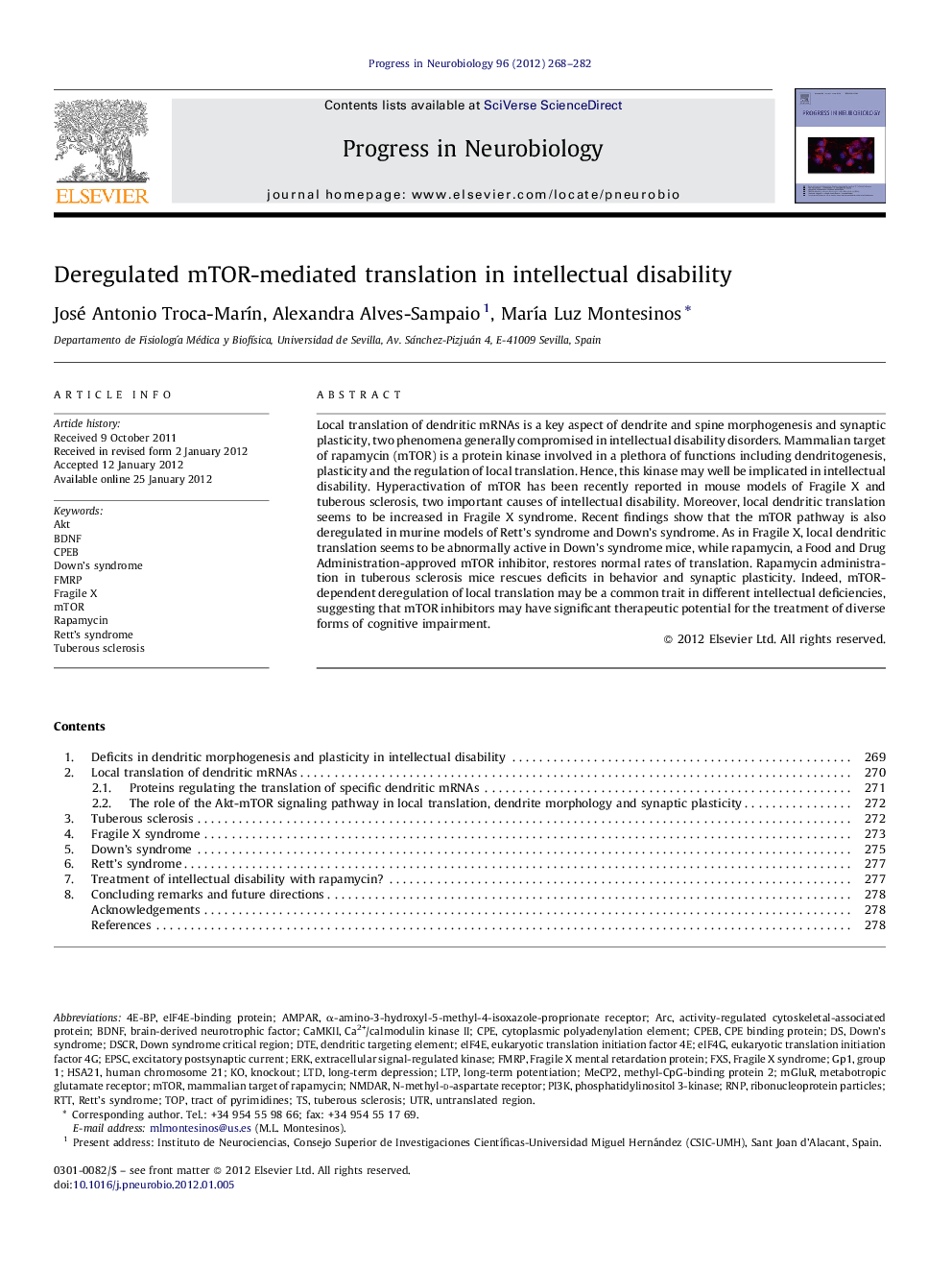| Article ID | Journal | Published Year | Pages | File Type |
|---|---|---|---|---|
| 4353432 | Progress in Neurobiology | 2012 | 15 Pages |
Local translation of dendritic mRNAs is a key aspect of dendrite and spine morphogenesis and synaptic plasticity, two phenomena generally compromised in intellectual disability disorders. Mammalian target of rapamycin (mTOR) is a protein kinase involved in a plethora of functions including dendritogenesis, plasticity and the regulation of local translation. Hence, this kinase may well be implicated in intellectual disability. Hyperactivation of mTOR has been recently reported in mouse models of Fragile X and tuberous sclerosis, two important causes of intellectual disability. Moreover, local dendritic translation seems to be increased in Fragile X syndrome. Recent findings show that the mTOR pathway is also deregulated in murine models of Rett's syndrome and Down's syndrome. As in Fragile X, local dendritic translation seems to be abnormally active in Down's syndrome mice, while rapamycin, a Food and Drug Administration-approved mTOR inhibitor, restores normal rates of translation. Rapamycin administration in tuberous sclerosis mice rescues deficits in behavior and synaptic plasticity. Indeed, mTOR-dependent deregulation of local translation may be a common trait in different intellectual deficiencies, suggesting that mTOR inhibitors may have significant therapeutic potential for the treatment of diverse forms of cognitive impairment.
► Local translation regulated by mTOR is involved in synaptic morphology and plasticity. ► These two processes are impaired in intellectual disability. ► mTOR is deregulated in tuberous sclerosis, Fragile X, Down's and Rett's syndromes. ► Rapamycin emerges as a therapeutic possibility for treatment of cognitive impairment.
